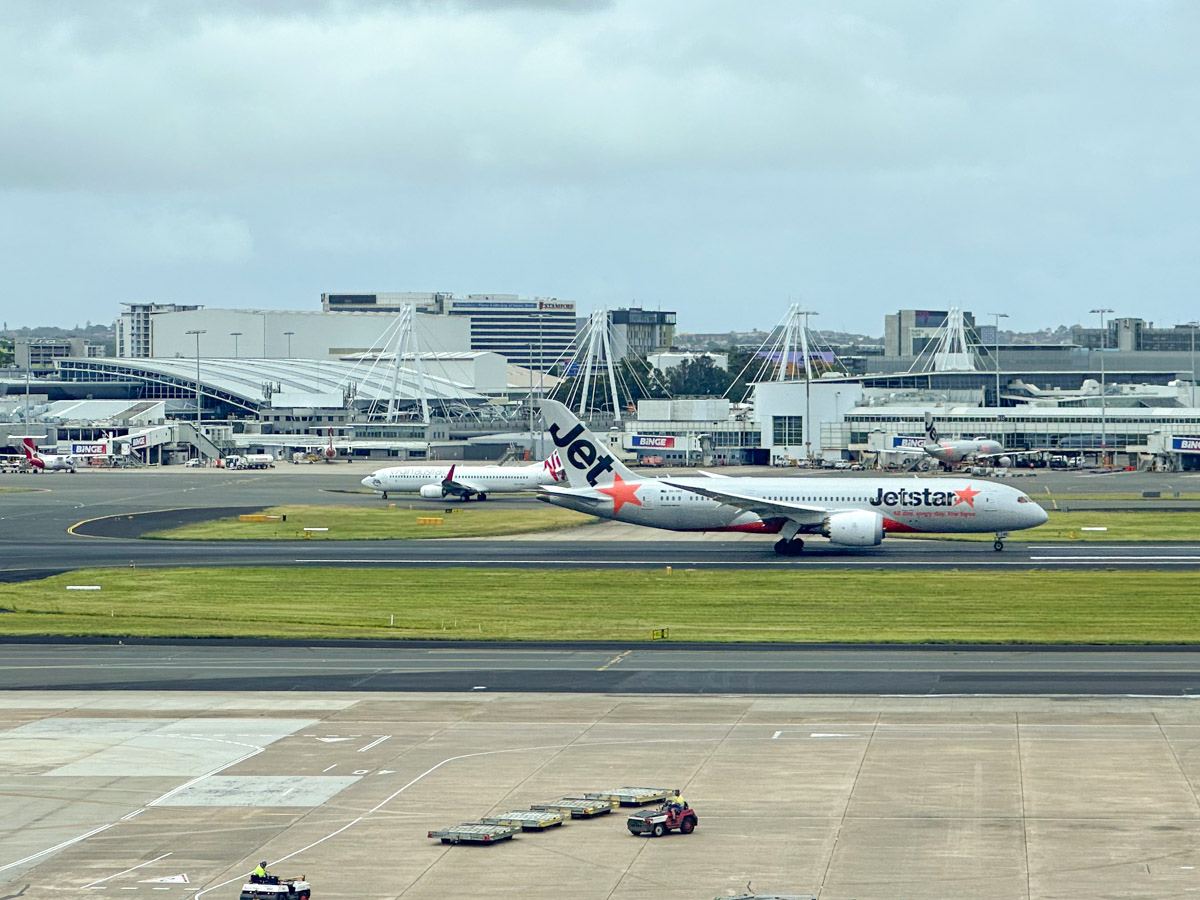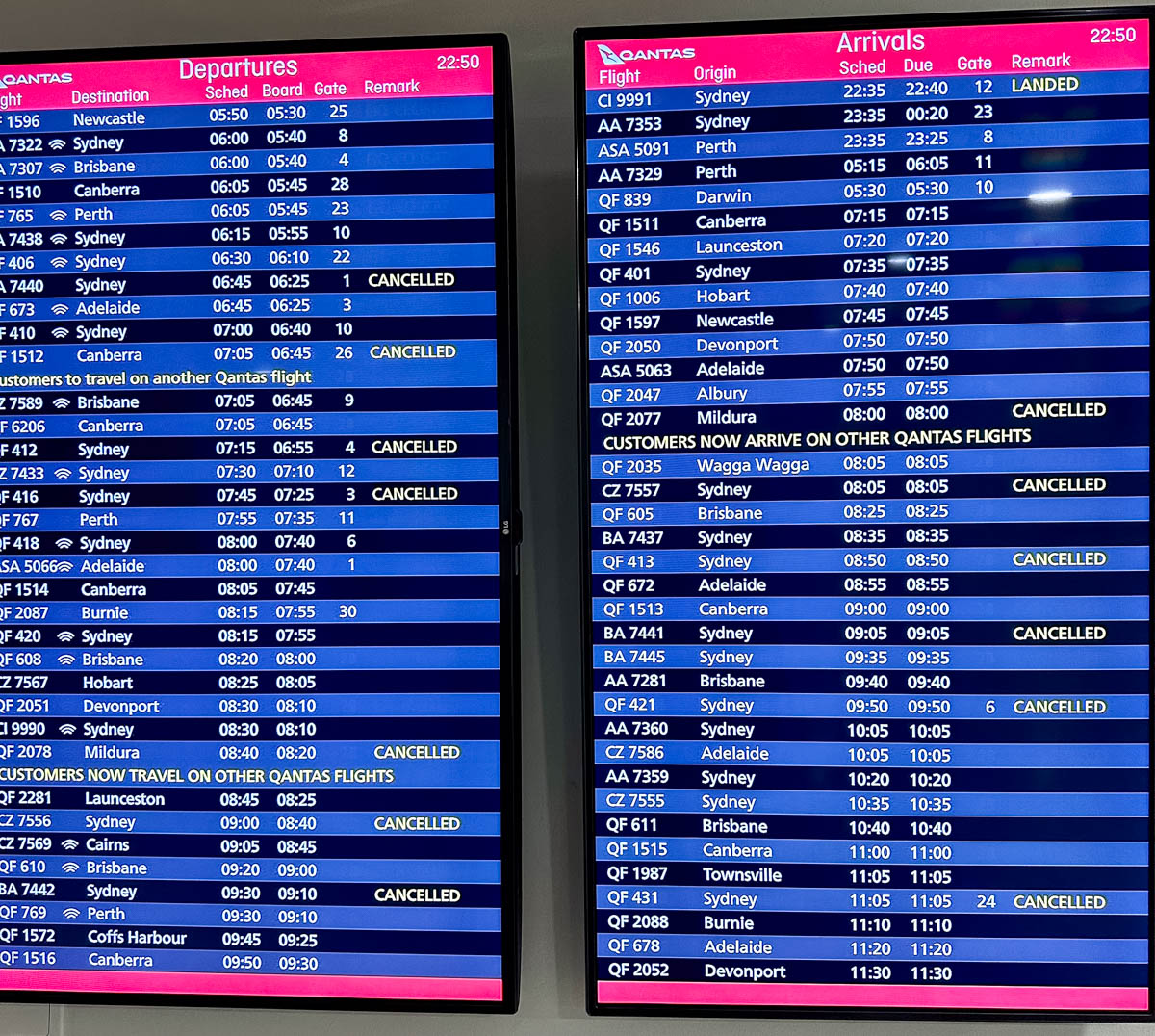Australia’s New Aviation Customer Rights Charter

The Australian government has released a draft version of its new Aviation Customer Rights Charter. This was one of the changes announced in the 2024 Aviation White Paper.
The Aviation Customer Rights Charter is due to be legislated later this year. In the meantime, the government is asking for feedback from the flying public about the charter’s proposed scope.
While the charter is a step in the right direction, many frequent flyers believe it falls well short of what’s truly required to improve outcomes for passengers. The charter mainly just makes it easier for the public to enforce rights they already enjoy under Australian Consumer Law.
What’s in the charter?
You can read the proposed charter in full on the Australian government’s website.
To summarise its contents, the new Aviation Customer Rights Charter outlines minimum standards of treatment for airline passengers in Australia. It proposes six core rights for airline passengers in Australia:
Aviation Customers have the right to:
- Be treated with dignity and respect, in an accessible and inclusive environment
- Accurate, timely and accessible information and customer service
- Prompt and fair remedies and support during and after cancellations, delays and disruptions
- Safe and timely baggage handling and fair remedies for damage and delays
- The protection of their personal information
- Provide feedback, make complaints and exercise their rights without retribution
The proposed charter does have some good aspects
Although it could go much further, the charter does offer a few new protections and minimum standards that could prove useful.
Access to timely customer service
For example, under this charter, airline customer service representatives must be available at the airport or on the phone to assist passengers in a timely manner. This would have been very useful for me a few years ago when I got stuck at Perth Airport after I could not buy a ticket and could not reach anyone at Qantas who was able to help. The airport staff simply gave me a phone number to call, and I was still on hold when the flight I was trying to book departed.
Furthermore, the charter proposes that “any call centre should include the capability for a customer call-back option or voicemail, to ensure customers are not on hold for excessive periods of time”.
Improved handling of delays
There are some new minimum standards around how airlines must communicate with customers during delays. For example, airlines must provide prompt information about delays and cancellations. As it stands, I’m often notified about disruptions by the Flighty App before I hear from the airline. So, this will be a welcome development.
There are also new standards relating to ground delays. The charter states that if a flight has already boarded but is delayed on the ground for more than an hour, airlines must provide customers “access to amenities, appropriate refreshments and regular information updates”.
This may seem like common sense, but it’s not always currently the case. A couple of years ago, I was on a Qantas flight to Singapore that copped a three-hour ground delay after boarding. The crew did provide water, but gave minimal information or updates during the delay.

Canada’s air passenger rights charter has a similar clause that requires airlines to give updates at least every 30 minutes in the case of rolling delays. I was once on an Air Canada flight that was delayed around seven hours. Sure enough, the cabin crew did at least give an update every 30 minutes – even if it was just to say that we were still waiting for the pilots to arrive.
Refund improvements
If a flight is delayed for more than three hours, passengers will soon have the right to cancel for a full refund. However, the original airline will not be obligated to cover any fare difference if a customer chooses to cancel and buy a last-minute ticket on another airline. Passengers won’t get a refund if they still choose to fly on the delayed service.
According to the charter, refunds “should” be provided within 14 days. However, it doesn’t outline any consequences if airlines take significantly longer than this.
When a customer is entitled to a refund, airlines will be required to give a cash refund by default. Airlines can offer customers a credit instead, but the customer must actively agree to this.
Under Australian Consumer Law, airline passengers are already entitled to a refund under specific circumstances (e.g. if a flight is cancelled for reasons within the airline’s control).
However, during the COVID-19 pandemic, many airlines including Qantas issued flight credits as the default option instead of cash refunds. Many customers were unaware they could access a refund. Others tried requesting one but gave up when they could not get through to the airline’s call centre.
Australian airlines have poor on-time performance
A recent report by Cirium revealed that Australia’s airlines have among the worst delay and cancellation rates in the world.

The charter will help Australian airline passengers to understand their existing rights and access marginally better service.
But, without a European-style compensation scheme, we’re unlikely to see substantial improvements in airline on-time performance. An “AU261” scheme, which many consumer groups have advocated for, could have seen airlines liable to pay cash compensation for significant delays and flight cancellations for reasons within the airline’s control.
Sadly, the Aviation Customer Rights Charter we’ve ended up with offers nothing like this. This leaves Australian airlines free to sell unrealistic flight schedules or cancel flights for commercial reasons, with minimal real consequences other than dissatisfied customers. And with only two major airline groups in Australia, those customers don’t have many other options for domestic trips.
How to leave feedback
The Australian government is inviting submissions about the proposed Aviation Customer Rights Charter until 28 February 2025. Anyone can make a submission.
The Department of Transport website has more details about how you can give feedback.


